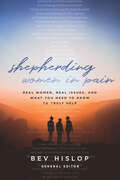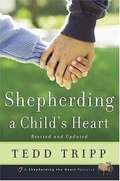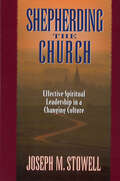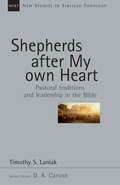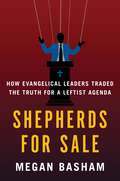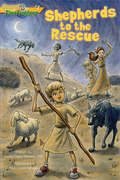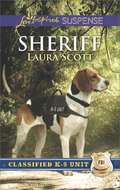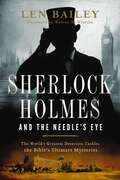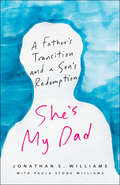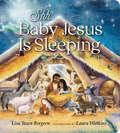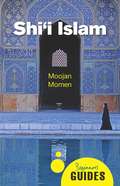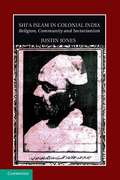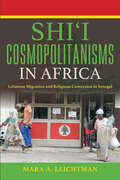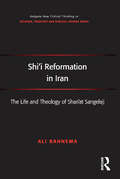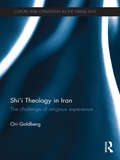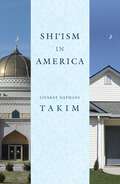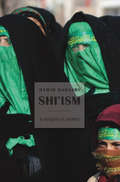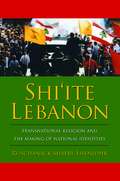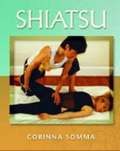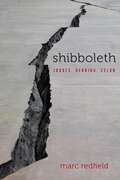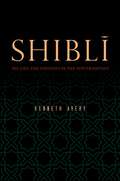- Table View
- List View
Shepherding Women in Pain: Real Women, Real Issues, and What You Need to Know to Truly Help
by Bev HislopA critical resource for anyone who wants to help women with the pressures, frustrations, and trauma they faceWomen today often have sources of tremendous pain in their lives such as infertility, divorce, domestic violence, eating disorders, and more. Yet, most leaders are not prepared to help women who have real pain from such traumatizing issues. If you want to be better equipped to help women in pain, this book was written for you. Designed to give leaders and care givers greater understanding and insights, Shepherding Women in Pain is a compilation from contributors who have expertise and experience on the given issue. Learn about domestic violence from expert Stacey Womack, founder and executive director of Abuse Recovery Ministry & Services; or learn how to help women who struggle with eating disorders from Kimberley Davidson, founder of Olive Branch Outreach.The reader will be provided concise, practical, and grace-infused information designed to help women deal constructively with the trauma of their life experiences. This book will serve as a key resource--to read and re-read often--for those who serve women in pain. A remarkable blend of expertise and empathy, Shepherding Women in Pain is a perfect resource for pastors, church staff, and women&’s ministry leaders alike who want to help women in pain experience Jesus, joy, and wholeness again.
Shepherding Women in Pain: Real Women, Real Issues, and What You Need to Know to Truly Help
by Bev HislopA critical resource for anyone who wants to help women with the pressures, frustrations, and trauma they faceWomen today often have sources of tremendous pain in their lives such as infertility, divorce, domestic violence, eating disorders, and more. Yet, most leaders are not prepared to help women who have real pain from such traumatizing issues. If you want to be better equipped to help women in pain, this book was written for you. Designed to give leaders and care givers greater understanding and insights, Shepherding Women in Pain is a compilation from contributors who have expertise and experience on the given issue. Learn about domestic violence from expert Stacey Womack, founder and executive director of Abuse Recovery Ministry & Services; or learn how to help women who struggle with eating disorders from Kimberley Davidson, founder of Olive Branch Outreach.The reader will be provided concise, practical, and grace-infused information designed to help women deal constructively with the trauma of their life experiences. This book will serve as a key resource--to read and re-read often--for those who serve women in pain. A remarkable blend of expertise and empathy, Shepherding Women in Pain is a perfect resource for pastors, church staff, and women&’s ministry leaders alike who want to help women in pain experience Jesus, joy, and wholeness again.
Shepherding a Child's Heart
by Tedd TrippUsing Scripture, the author offers ideas on child-rearing. He points out the importance of having children realize their sinful nature and offers advice to parents on how to shepherd their children's heart and disciple them.
Shepherding the Church: Effective Spiritual Leadership in a Changing Culture
by Joseph M. StowellTimes are changing. The Truth never will. It's tough to be a pastor today. Christians who stand up for what God has said are disregarded and labeled right-wing extremists. Political correctness and tolerance of anything but godly character is the norm. So how do ministers lead God's people in this pagan culture? How do they shepherd the flock as the lights fade dimmer and the nights grow colder? This book is not about programs. It not about developing the best techniques for numerical growth. Rather it is a discussion of the heart of the matter - the heart of the shepherd. In Shepherding the Church, Dr. Stowell takes a look at what it takes to be a truly effective leader from the inside out. He encourages today's leaders to focus on their own character, spiritual growth, and spiritual gifts. Examine some heart issues like: how do I prove to my congregation that I'm trustworthy? how do I lead by loving? how do I overcome insecurities? how can I transform lives with my preaching? how do I lead my flock by the way I live my life? how do I persevere?Even in these tough times, effective leadership is possible. Learn from Dr. Stowell as he encourages today's leaders to keep their eyes on the non-negotiables of Christian ministry.
Shepherding the Church: Effective Spiritual Leadership in a Changing Culture
by Joseph M. StowellTimes are changing. The Truth never will. It's tough to be a pastor today. Christians who stand up for what God has said are disregarded and labeled right-wing extremists. Political correctness and tolerance of anything but godly character is the norm. So how do ministers lead God's people in this pagan culture? How do they shepherd the flock as the lights fade dimmer and the nights grow colder? This book is not about programs. It not about developing the best techniques for numerical growth. Rather it is a discussion of the heart of the matter - the heart of the shepherd. In Shepherding the Church, Dr. Stowell takes a look at what it takes to be a truly effective leader from the inside out. He encourages today's leaders to focus on their own character, spiritual growth, and spiritual gifts. Examine some heart issues like: how do I prove to my congregation that I'm trustworthy? how do I lead by loving? how do I overcome insecurities? how can I transform lives with my preaching? how do I lead my flock by the way I live my life? how do I persevere?Even in these tough times, effective leadership is possible. Learn from Dr. Stowell as he encourages today's leaders to keep their eyes on the non-negotiables of Christian ministry.
Shepherds Abiding (A Mitford Novel #8)
by Jan KaronSince he was a boy growing up in Missisippi, Father Tim has lived what he calls “the life of the mind.” Except for cooking and gardening and washing his dog, he never learned to savor the work of his hands. And then he finds a derelict nativity scene—twenty figures, including a flock of sheep, that have suffered the indignities of time and neglect.Could he give the small company new life? Restore the camel’s ear, repaint every piece, replace a missing nose on a wise man? “You can’t teach an old dog new tricks!” he reminds himself. It’s when he imagines the excitement in Cynthia’s eyes that he steps up to the plate—and begins a small journey of faith that touches everyone around him.The eighth novel in the bestselling Mitford Years series is a meditation on the best of all presents—the gift of one’s heart. Lovingly written and beautifully illustrated, it seeks to restore the true Christmas spirit and give everyone a seat at Mitford’s holiday table.
Shepherds Abiding in Dry Creek (Dry Creek Series #10)
by Janet TronstadA Home For The Holidays. That's what Marla Gossett sought when she moved to Dry Creek, Montana. She wanted a safe haven to raise her kids, far from the troubles of the past. Then an unusual theft cast suspicion on her family. . . and brought Deputy Sheriff Les Wilkerson into the struggling widow's life. In Marla's young son, Les saw a lonely child in need of a guiding hand. In the plucky single mother, he saw a woman he could love. But a crisis threatened to destroy Marla's fragile trust. Unless the deputy could convince her that her family had a special place in the community. . . and in this bachelor's heart.
Shepherds After My Own Heart: Pastoral Traditions and Leadership in the Bible (New Studies in Biblical Theology #20)
by Timothy LaniakScripture says, "I will give you shepherds after my own heart, who will lead you with knowledge and understanding" (Jeremiah 3:15). Most of Israel's pastoral imagery is grounded in two traditions: Moses as God's under-shepherd and David as shepherd-king. These traditions, explains author Timothy S. Laniak, provided prototypes for leaders that followed, and formed the background for the ministry of Jesus, the good shepherd. The pastoral role was central to the ongoing life of local churches in the Christian movement, and today's pastors are still called to be shepherds after God's own heart, to lead his people, living on the margins of settled society, to their eternal home. In this excellent study, Laniak draws on a wide range of Old and New Testament texts to develop the biblical theology of "shepherd" imagery, and concludes with some principles and implications for contemporary pastoral ministry. A wonderful resource for pastors, teachers and seminary students, as well as readers interested in the study of biblical imagery.
Shepherds for Sale: How Evangelical Leaders Traded the Truth for a Leftist Agenda
by Megan Basham“This may just be the single most important book on modern Evangelicalism in recent years. It is bold, clear, and very well-researched.”—John MacArthurHow deeply have leftist billionaires infiltrated America’s churches?In Shepherds for Sale, Megan Basham of the Daily Wire documents how progressive powerbrokers —from George Soros, to the founder of eBay, to former members of the Obama administration— set out to change the American church. Their goal: to co-opt evangelicals for political purposes. She exposes:· The left-wing billionaires, foundations, and think tanks that deliberately target Christian media, universities, megachurches, nonprofits, and even entire denominations· The celebrity megachurch pastor who secretly encouraged a group of pastors to change their views on sexuality· The revered Presbyterian theologian who backed a congregation rebelling against his own denominationThese are just a glimpse into the compromises and astroturf campaigns Basham uncovers. Many evangelical leaders are pushing their members to “whisper” about sexual sins, reconsider the importance of abortion, lament the effects of climate change, and repent of “perpetuating systemic racism.” And in exchange for toeing a left-wing line, many of those church leaders and institutions have received cash, career jumps, prestige, and praise. Basham brings the receipts, and names names.A rigorously reported exposé, Shepherds for Sale is a warning of what happens when the church trusts the world’s wisdom instead of Scripture.
Shepherds to the Rescue (Gospel Time Trekkers #1)
by Maria Grace Dateno FSPIn this first volume of the Gospel Time Trekkers series, children ages 6-8 are taken on a journey that imaginatively retraces the birth of Jesus through the experiences of modern siblings Hannah, Caleb, and Noah.
Sheriff
by Laura ScottHAZARDOUS HOMECOMING Witnessing a prison break, FBI agent Julianne Martinez is within seconds of death...before she's rescued by the one man she thought she'd never see again. She'd know her long-ago love, Brody Kenner, anywhere, even with a sheriff star on his chest. Years ago she left Texas and Brody, and had no plans of returning...until the trail of a missing agent brought her home to both. Brody won't let her investigation proceed without him, and he needs her and her K-9 dog to track his escaped prisoner. But partnering with Julianne to solve two cases only leads to danger when the hunted becomes the hunter. This is a mission that cannot fail...because Brody lost Julianne once, and he won't lose her again.
Sherlock Holmes and the Needle's Eye: The World's Greatest Detective Tackles the Bible's Ultimate Mysteries
by Len BaileyEmbark on a journeythrough the Old and New Testament with Sherlock Holmes and Dr. John Watson asthey explore exotic and spice-laden places in search of clues. The detective and the doctor travel back intime with the help of a Moriarty-designed time machine to investigate ten Bibledestinations, unlocking clues to ten Bible mysteries. The most fascinatingcrime cases are those that are already solved, those that have beeninvestigated by the police and brought to a swift, satisfying, and almostinevitable conclusion. So it is with Bible stories which the reader mayconsider familiar and unremarkable. But under close scrutiny these stories giveup their hidden clues, their long kept secrets. Like a jewel newly polished,they sparkle and shine with a fresh, introspective light. While traveling back in time to witnesscertain scenes, Holmes and Watson unravel ten different Biblical mysteries,including the following: · The Hanging Tree: Why did Ahithophel hang himself?· Righteous Blood is Red: Is Zechariah the son of Berekiah orJehoiada in Matthew 23? · You Miss, You Die: Why did David take five stones against Goliath?· Dead Man Walking: Why did Jesus delay in coming to Lazarus in John11?
She’s My Dad: A Father's Transition And A Son's Redemption
by Jonathan WilliamsJonathan S. Williams was three months into pastoring a new, evangelical church plant when his father confessed a secret: he was transgender. His father, Paul, a prominent evangelical pastor, soon became Paula, and Jonathan’s life and ministry went into a tailspin. Feeling betrayed by his mentor and confidante and scared that his church would lose funding and support if Paula’s secret was exposed, Jonathan sunk into depression and alcoholism. <P><P> She’s My Dad explores Jonathan’s long and winding journey toward reconciliation, forgiveness, and acceptance of his father as well as his church’s journey to become one of the few fully LGBTQ-inclusive, evangelical churches in America. Jonathan and Paula offer insight and encouragement for those with trans family members, empathizing with the feelings of loss and trauma and understanding that even being LGBTQ-affirming doesn’t mean the transition of a family member will be easy. Jonathan writes of his family’s continuing evolution, the meaning of remaining loyal to one’s father even when she is no longer a man, the ongoing theological evolution surrounding transgender rights and advocacy in the church, and the unflinching self-scrutiny of a pastor who lost his God only to find God again in his father’s transition.
Shh... Baby Jesus Is Sleeping
by Lisa Tawn BergrenThe author of the bestselling God Gave Us series invites children to snuggle in close and peek into the stable where the animals are celebrating the very first Christmas."All be quiet...settle down. Shh, shh, shh. Baby Jesus is sleeping." So begins this sweet bedtime story in which all the animals in the nativity scene call their little ones to snuggle in close and rest quietly as they honor the arrival of a precious Baby--the Savior of all living things--that first Christmas night.Not a peep, Little Sheep. Baby Jesus is sleeping!Lie down now, Little Cow. Baby Jesus is sleeping!...We rest tonight, knowing he is near.Our promised King is finally here!
Shi'I Islam: A Beginner's Guide (Beginner's Guides)
by Moojan MomenDr Moojan Momen provides readers with an accessible and insightful introduction to the Shi'i branch of Islam, taking us from its beginnings after the death of the Prophet Muhammad through to the present day. As well as providing a historical overview, the book also introduces readers to Shi'i doctrines and practices, explains the key differences between the Shi'i and Sunni branches of Islam, and addresses the role and position of women within Shi'i communities.
Shi'a Islam in Colonial India: Religion, Community and Sectarianism
by Justin JonesInterest in Shi'a Islam has increased greatly in recent years, although Shi'ism in the Indian subcontinent has remained largely underexplored. Focusing on the influential Shi'a minority of Lucknow and the United Provinces, a region that was largely under Shi'a rule until 1856, this book traces the history of Indian Shi'ism through the colonial period toward independence in 1947. Drawing on a range of new sources, including religious writing, polemical literature and clerical biography, it assesses seminal developments including the growth of Shi'a religious activism, madrasa education, missionary activity, ritual innovation and the politicization of the Shi'a community. As a consequence of these significant religious and social transformations, a Shi'a sectarian identity developed that existed in separation from rather than in interaction with its Sunni counterparts. In this way the painful birth of modern sectarianism was initiated, the consequences of which are very much alive in South Asia today.
Shi'i Cosmopolitanisms in Africa: Lebanese Migration And Religious Conversion In Senegal (Public Cultures Of The Middle East And North Africa Ser.)
by Mara A. LeichtmanMara A. Leichtman offers an in-depth study of Shi'i Islam in two very different communities in Senegal: the well-established Lebanese diaspora and Senegalese "converts" from Sunni to Shi'i Islam of recent decades. Sharing a minority religious status in a predominantly Sunni Muslim country, each group is cosmopolitan in its own way. Leichtman provides new insights into the everyday lives of Shi'i Muslims in Africa and the dynamics of local and global Islam. She explores the influence of Hizbullah and Islamic reformist movements, and offers a corrective to prevailing views of Sunni-Shi'i hostility, demonstrating that religious coexistence is possible in a context such as Senegal.
Shi'i Reformation in Iran: The Life and Theology of Shari’at Sangelaji (Routledge New Critical Thinking in Religion, Theology and Biblical Studies)
by Ali RahnemaShi 'ism caught the attention of the world as Iran experienced her revolution in 1979 and was subsequently cast in the mold of a monolithic discourse of radical political Islam. The spokespersons of Shi'i Islam, in or out of power, have not been the sole representatives of the faith. Nonconformist and uncompromising, the Shi’i jurist and reformist Shari’at Sangelaji (1891-1944) challenged certain popular Shi’i beliefs and the mainstream clerical establishment, guarding and propagating it. In Shi'i Reformation in Iran, Ali Rahnema offers a fresh understanding of Sangelaji’s reformist discourse from a theological standpoint, and takes readers into the heart of the key religious debates in Iran in the 1940s. Exploring Sangelaji’s life, theological position and disputations, Rahnema demonstrates that far from being change resistant, debates around why and how to reform the faith have long been at the heart of Shi’i Islam. Drawing on the writings and sermons of Sangelaji, as well as interviews with his son, the book provides a detailed and comprehensive introduction to the reformist’s ideas. As such it offers scholars of religion and Middle Eastern politics alike a penetrating insight into the impact that these ideas have had on Shi’ism - an impact which is still felt today.
Shi'i Theology in Iran: The Challenge of Religious Experience (Culture and Civilization in the Middle East)
by Ori GoldbergTaking a theologically oriented method for engaging with historical and cultural phenomena, this book explores the challenge, offered by revolutionary Shi’i theology in Iran, to Western conventions on theology, revolution and religion’s role in the creation of identity. Offering a stringent critique of current literature on political Islam and on Iran's 1979 Islamic Revolution, the author suggests that current literature fails to perceive and engage with the revolution and its thought as religious phenomena. Grounded in the experience of unconditional faith in God, Shi'i thinkers recognize a distinction between the human and the divine. Concerned with the challenge of constructing a virtuous society, these thinkers pose a model of authority and morality based on mediation, interpretation and participation in the experience of faith. Ori Goldberg considers this interpretative model utilizing a broad array of theoretical tools, most notably critical theologies drawn from Jewish and Christian thought. He draws on a close reading of several texts written by prominent Iranian Shi'i thinkers between 1940 and 2000, most of which are translated into English for the first time, to reveal a vibrant, complex discourse. Presenting a new interfaith perspective on a subject usually considered beyond the scope of such research, this book will be an important reference for scholars of Iranian studies, political Islam, theology and cultural studies.
Shi'ism in America
by Liyakat Nathani TakimAn authoritative introduction to the Shi&’i community in America, tracing its history, composition, and the development of American Shi&’i identity. There are over two million Shi&’is Muslims in the United States. With community roots going back sometimes close to one hundred years, Shi&’is can be found in major cities like New York, Los Angeles, Chicago, Washington, and Dearborn, Michigan. Early in the century, Shi&’is and Sunnis sometimes arrived at the same time, worshipped together, shared similar experiences, and confronted the same challenges despite their sectarian differences. In this comprehensive study, Liyakat Nathani Takim provides an in-depth account of the American Shi&’i experience. Both tracing the early history and illuminating the more recent past with surveys and interviews, Takim explores the life of this community. Filling an important scholarly gap, he also demonstrates how living in the West has impelled the Shi&’i community to grapple with the ways in which Islamic law may respond to the challenges of modernity. Shi&’ism in America provides a much-needed overview of the history of this United States religious community, from religious, cultural, and political institutions to inter-group relations, to the experience of African American Shi&’is.
Shi'ism: A Region of Protest
by Hamid DabashiFor a Western world anxious to understand Islam and, in particular, Shi’ism, this book arrives with urgently needed information and critical analysis. Hamid Dabashi exposes the soul of Shi’ism as a religion of protest—successful only when in a warring position, and losing its legitimacy when in power. Dabashi makes his case through a detailed discussion of the Shi’i doctrinal foundations, a panoramic view of its historical unfolding, a varied investigation into its visual and performing arts, and finally a focus on the three major sites of its contemporary contestations: Iran, Iraq, and Lebanon. In these states, Shi’ism seems to have ceased to be a sect within the larger context of Islam and has instead emerged to claim global political attention. Here we see Shi’ism in its combative mode—reminiscent of its traumatic birth in early Islamic history. Hezbollah in Lebanon claims Shi’ism, as do the militant insurgents in Iraq, the ruling Ayatollahs in Iran, and the masses of youthful demonstrators rebelling against their reign. All declare their active loyalties to a religion of protest that has defined them and their ancestry for almost fourteen hundred years. Shi’sm: A Religion of Protest attends to the explosive conflicts in the Middle East with an abiding attention to historical facts, cultural forces, religious convictions, literary and artistic nuances, and metaphysical details. This timely book offers readers a bravely intelligent history of a world religion.
Shi'ite Lebanon: Transnational Religion and the Making of National Identities (History and Society of the Modern Middle East)
by Roschanack Shaery-EisenlohrBy recasting the relationship between religion and nationalism in the Middle East, Roschanack Shaery-Eisenlohr proposes a new framework for understanding Shi'ite politics in Lebanon. Her study draws on a variety of untapped sources, reconsidering not only the politics of the established leadership of Shi'ites but also institutional and popular activities of identity production. Shaery-Eisenlohr traces current Shi'ite politics of piety and authenticity to the coexistence formula in Lebanon and argues that engaging in the discourses of piety and coexistence is a precondition to cultural citizenship in Lebanon. As she demonstrates, debates over the nature of Christianity and Islam and Christian-Muslim dialogue are in fact intertwined with power struggles at the state level.Since the 1970s, debates in the transnational Shi'ite world have gradually linked Shi'ite piety with the support of the Palestinian cause. Iran's religious elite has backed this piety project in multiple ways, but in doing so it has assisted in the creation of a variety of Lebanese Shi'ite nationalisms with competing claims to religious and national authenticity. Shaery-Eisenlohr argues that these ties to Iran have in fact strengthened the position of Lebanese Shi'ites by providing, as is recognized, economic, military, and ideological support for Hizbullah, as well as by compelling Lebanese Shi'ites to foreground the Lebanese components of their identity more forcefully than ever before. Shaery-Eisenlohr challenges the belief that Shi'ite identity politics only serve to undermine the Lebanese national project. She also makes clear that the expression of Lebanese Shi'ite identity is a nationalist expression and an unintended result of Iranian efforts to influence the politics of Lebanon.
Shiatsu
by Corinna SommaPeople must have high spiritual development to do this Shiatsu technique, because healing disease is not only by fingertip pressure. You have to have spiritual power to do healing by hand. So wrote the founder of modern Shiatsu, Tamai Tempaku, in his groundbreaking book Shiatsu Ho, published in 1919, and thereby affirmed the spiritual dimension of a highly manual art (Dubitsky, 1992). In my experience, most practitioners of Shiatsu and other forms of manual therapy are attracted to bodywork because it is a ministry of compassion that fosters wholeness, and this is a spiritual matter as much as a physical matter. Nevertheless, though we respond to a spiritual call, most of us invest considerable time, money, and effort in studying and mastering technique, in perfecting the form of the practice, which is what books like this are designed to support. Only much later, and perhaps by grace, we might discover our healing gift, the supernatural side of healing and the substance, heart, or spirit of the practice.
Shibboleth: Judges, Derrida, Celan (Lit Z)
by Marc RedfieldWorking from the Bible to contemporary art, Shibboleth surveys the linguistic performances behind the politics of border crossings and the policing of identities.In the Book of Judges, the Gileadites use the word shibboleth to target and kill members of a closely related tribe, the Ephraimites, who cannot pronounce the initial shin phoneme. In modern European languages, shibboleth has come to mean a hard-to-falsify sign that winnows identities and establishes and confirms borders. It has also acquired the ancillary meanings of slogan or cliché. The semantic field of shibboleth thus seems keyed to the waning of the logos in an era of technical reproducibility—to the proliferation of technologies and practices of encryption, decryption, exclusion and inclusion that saturate modern life. The various phenomena we sum up as neoliberalism and globalization are unimaginable in the absence of shibboleth-technologies.In the context of an unending refugee crisis and a general displacement, monitoring and quarantining of populations within a global regime of technics, Paul Celan’s subtle yet fierce reorientation of shibboleth merits scrupulous reading. This book interprets the episode in Judges together with Celan’s poems and Jacques Derrida’s reading of them, as well as passages from William Faulkner’s Absalom, Absalom! and Doris Salcedo’s 2007 installation Shibboleth at the Tate Modern. Redfield pursues the track of shibboleth: a word to which no language can properly lay claim—a word that is both less and more than a word, that signifies both the epitome and the ruin of border control technology, and that thus, despite its violent role in the Biblical story, offers a locus of poetico-political affirmation.
Shiblī: His Life and Thought in the Sufi Tradition
by Kenneth AveryEarly Sufi master Abū Bakr al-Shiblī (d. 946) is both famous and unknown. One of the pioneers of Islamic mysticism, he left no writings, but his legacy was passed down orally, and he has been acclaimed from his own time to the present. Accounts of Shiblī present a fascinating figure: an eccentric with a showy red beard, a lover of poetry and wit, an ascetic who embraced altered states of consciousness, and, for a time, a disturbed man confined to an insane asylum. Kenneth Avery offers a contemporary interpretation of Shiblī's thought and his importance in the history of Sufism. This book surveys the major sources for Shiblī's life and work from both Arabic and Persian traditions, detailing the main facets of his biography and teachings and documenting the evolving figure of a Sufi saint. Shiblī's relationships with his more famous colleague Junayd and his infamous colleague Ḥallāj are discussed, along with his Qur'ānic spirituality, his poetry, and the question of his periodic insanity.
